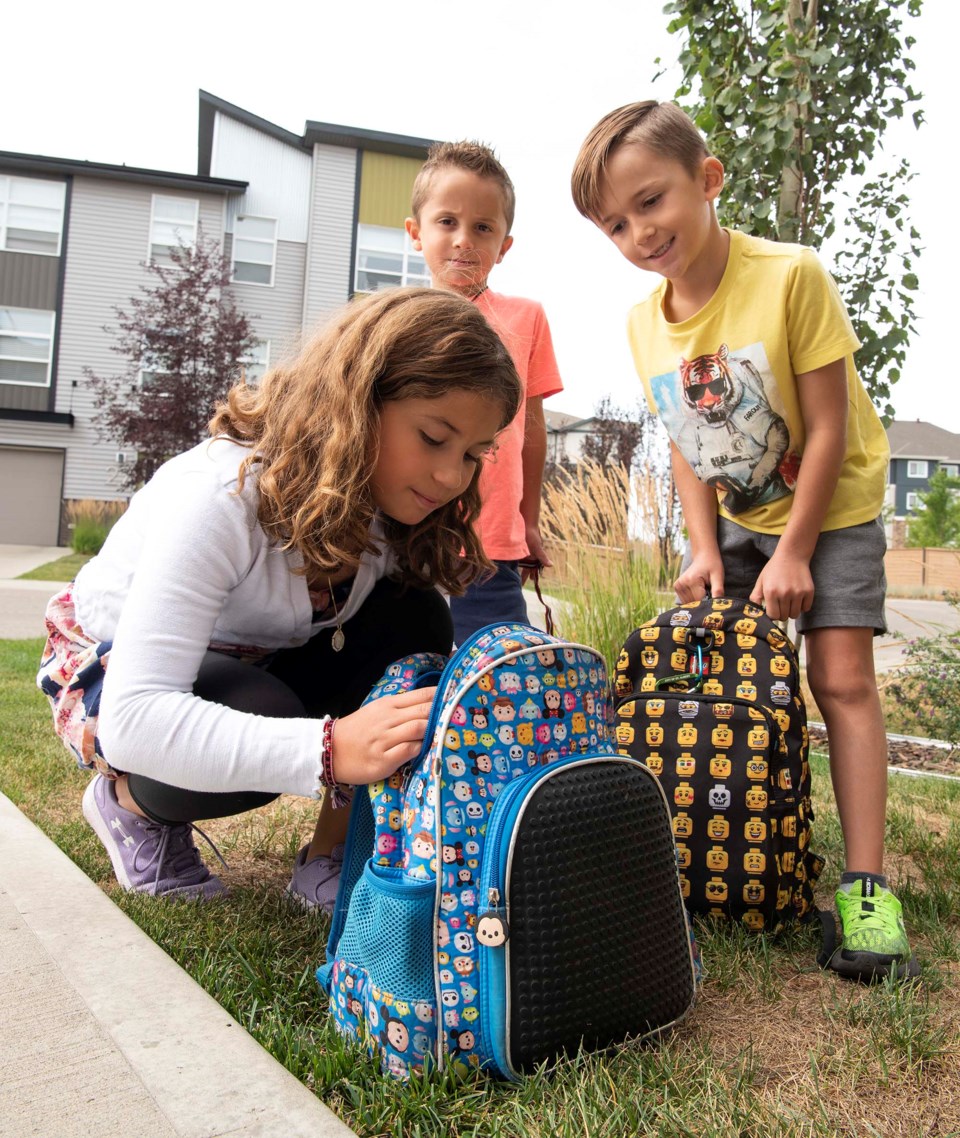The start of school was a big challenge for Valentina Rodriguez and her brothers three years ago. They had just immigrated from Mexico and knew only rudimentary English.
“When my brothers got [to school] they thought the teacher was saying, ‘Blah blah blah,’ because he was speaking English,” said Valentina, who enters Grade 4 in St. Albert this fall.
Valentina said her youngest brother, Sebastian, cried for three months in preschool as he didn’t understand English. She herself was terrified she would be kidnapped by criminals, as her school had none of the armed guards or security fences used to address such risks in Mexico.
Valentina’s teacher didn’t understand her concerns, so it was up to her mother, Paulina Rodriguez, to explain that the school was safe and supervised.
“It sounds silly, but it’s important for the kids,” Paulina said.
“If someone understands them, it makes a difference in their lives.”
Cultural challenges
The Rodriguez children are some of the hundreds of new immigrants to Canada that face cultural barriers upon stepping into St. Albert schools for the first time.
Greater St. Albert Catholic typically hosts about 200 English-language-learning students in any year, board spokesperson Carol Bruineman said in an email. St. Albert Public typically has less than a dozen such students per school at any one time, said Trustee Cheryl Dumont, who is also executive director of St. Albert Further Education.
Muna Abdulhussain is the newcomer connection co-ordinator at St. Albert Further Education and is working to become the one-stop-shop for new Canadians in town.
Language can be a major challenge for some immigrant parents, Abdulhussain said. When she and her kids came to Canada from Iraq 12 years ago, she struggled to understand what school officials were saying, and had to have her kids translate for her.
“The doctor was a nightmare for me when I went,” she added, due to the language barrier.
School culture can also be a source of confusion, said Catherine Coyne, curriculum services director with St. Albert Public. Some countries may put greater or less emphasis on structure and homework, for example, or might not do rallies or group projects. Abdulhussain said her daughter was confused to see boys in her class, as schools in Iraq were gender-segregated.
Weather was another common surprise. Valentina said she thought she would freeze during her first Canadian winter, while Abdulhussain said her kids got depressed over having to trudge to school in minus 25 C weather.
Some new Canadian kids arrive here without proper winter coats, said Suzan Krecsy of the St. Albert Community Village and Food Bank.
“If they’re coming from a warm climate to here in the wintertime, it’s a huge culture shock.”
Community solutions
The Edmonton Immigrant Services Association (EISA) operates out of the Edmonton and St. Albert public libraries and offers many free services to help new Canadians adapt to school, said spokesperson Margarita Cameron. These include tutors, interpreters, conversation circles, and info sessions on Canadian clothing, weather, body language, school culture, and other subjects.
Krecsy said the Food Bank’s cultural kitchen can help new families meet other recent immigrants and learn to cook with Canadian foods. They also offer school supplies and winter clothes.
“Whatever the kids need, we can get it for them.”
Bruineman said St. Albert Catholic has partnered with STAR Literacy and the immigrant services association this year to give students and parents access to tutors and interpreters.
St. Albert Further Education has interpreters who can help parents deal with schools, Dumont said. The group also plans to launch new courses on Canadian culture and parent-teacher interviews this fall.
Valentina said she got extra English lessons at her school based on the Imagine Learning app and could ask her teacher for help with tricky words. She has learned to love winter and skiing, and hopes to join her school’s running club this fall.
Paulina said one of the best ways for people to support new Canadians is to be approachable and open. She said one of her neighbours was a great help when she first came to St. Albert, and showed her all the paths and playgrounds in her neighbourhood.
“St. Albert has been great, as the community has been very supportive.”
Help for new arrivals
Parents new to Canada can call these organizations to help get their kids back to school:
• St. Albert Community Village and Food Bank: 780-459-0599
• Edmonton Immigrant Services Association: 780-474-8445
• St. Albert Further Education Newcomer Connection Program: 780-238-2017




